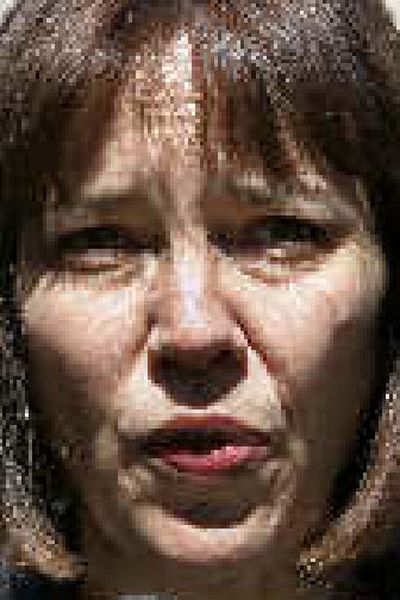Reporter testifies to grand jury

WASHINGTON – New York Times reporter Judith Miller told a grand jury Friday about her conversations with Vice President Dick Cheney’s top aide in the summer of 2003, moving the two-year investigation into whether senior Bush administration officials illegally leaked covert CIA agent Valerie Plame’s identity a step closer to its end.
Sources familiar with Miller’s testimony say her account of two discussions with Cheney’s chief of staff, I. Lewis “Scooter” Libby, that July are similar to the account Libby reportedly gave the grand jury last year. Both said they spoke about Plame’s husband, administration critic and former ambassador Joseph C. Wilson IV, on July 8 and again on July 12 or 13. On at least one of those occasions, Libby told Miller that Wilson’s wife worked at the CIA, the sources said.
Miller also turned over redacted copies of handwritten notes she made after one of the conversations with Libby, a condition set by Fitzgerald.
“I served 85 days in jail because of my belief in the importance of upholding the confidential relationship journalists have with their sources,” Miller said after emerging from the courthouse after three hours of testimony. “Believe me, I did not want to be in jail.”
Miller was the last person special prosecutor Patrick J. Fitzgerald sought to question in his investigation. The grand jury hearing the case is to conclude its work by Oct. 28.
Fitzgerald’s probe has focused on contacts between administration officials and reporters in the days after July 6, 2003, when Wilson published an opinion piece undercutting the administration’s justification for going to war with Iraq. Wilson alleged the government had “twisted intelligence” that he said he knew firsthand was dubious.
On July 14, Plame’s name appeared in a column by Robert D. Novak, who reported that two confidential government sources had told him Wilson’s wife helped arrange the trip he took to investigate claims that Iraq was trying to purchase uranium in the African nation of Niger for use in its nuclear weapons program.
Miller’s three hours of testimony, which came after she served 85 days in jail trying to avoid such questions, focused the spotlight again on Libby. In 2003, he was one of the lead defenders of the administration’s plan to invade Iraq, and of the ultimately flawed claim that Iraq was pursuing weapons of mass destruction.
Libby’s conversations with reporters that July have consumed much of Fitzgerald’s time. The top Cheney aide spoke with at least five reporters in the days after Wilson’s public criticism, and several of them, including two at the Washington Post, have answered Fitzgerald’s questions after working out agreements with their sources that allowed them to testify.
A source close to Miller said Friday that her testimony does not implicate Libby as intentionally and knowingly identifying Plame.
According to a source familiar with Libby’s account of his July 2003 conversations with Miller, the two first met for breakfast on July 8, when Miller interviewed Libby about weapons of mass destruction in Iraq. At that time, she asked him why Wilson had been chosen to investigate questions that Cheney had posed about whether Iraq tried to buy uranium in Niger. Libby, the source familiar with his account said, told her that the White House was working with the CIA to learn more about Wilson’s trip and how he was selected.
Libby had a second conversation with Miller, a telephone call on July 12 or July 13, the source said. In it, Libby said he had learned that Wilson’s wife had a role in sending him on the trip and that she worked for the CIA. Libby never knew Plame’s name or that she was a covert operative, the source said.
Miller never wrote an article on the matter.
As she stood on the courthouse steps Friday, Miller, 57, refused to answer questions about her testimony but said she hoped her days in the Alexandria (Va.) Detention Center would build support for laws to help reporters protect their confidential sources. She stressed that she was willing to testify only after Libby personally wrote her a letter and telephoned her in jail to make it clear she was free to talk, and after Fitzgerald agreed to limit his questions to her conversations with Libby.
Miller declined to answer questions on why she chose to accept Libby’s waiver of confidentiality now. Libby’s attorney, Joseph Tate, said he made it clear to Miller’s lawyers a year ago that Libby was freely agreeing to allow her to testify about their conversations.